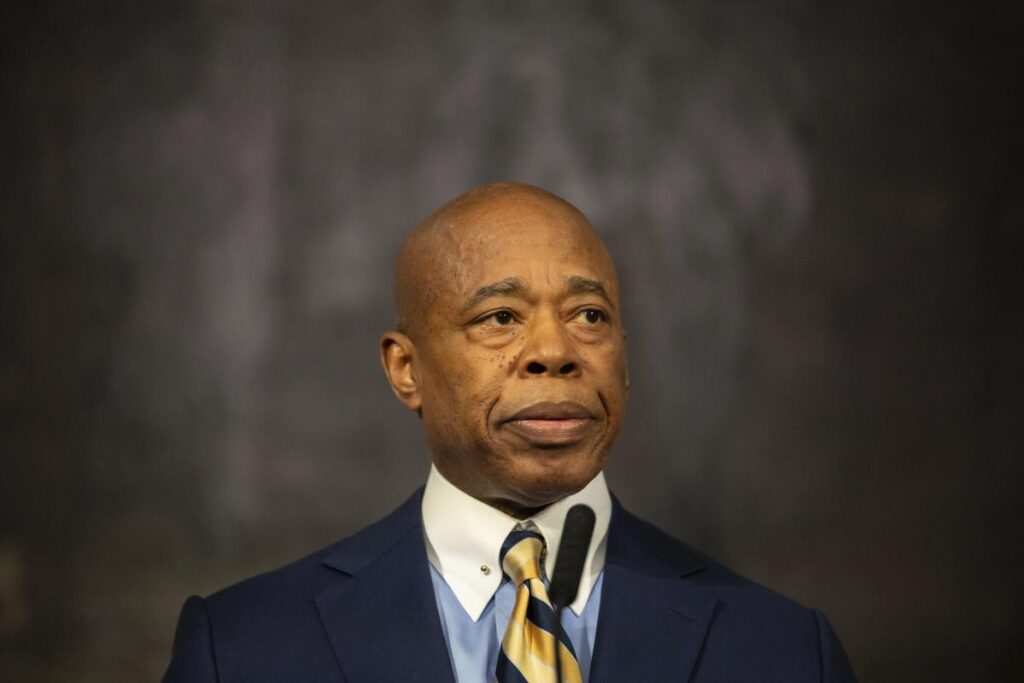In recent news from New York, President-elect Donald Trump has indicated that he may consider a pardon for New York City Mayor Eric Adams, who faces serious federal corruption charges. Adams has pleaded not guilty to five counts, which include conspiracy to commit wire fraud, soliciting contributions from a foreign national, and bribery. The charges against him suggest that he allegedly accepted illegal campaign contributions and travel perks, placing both his political career and integrity under scrutiny. As his trial is scheduled to commence on April 21, Adams has vocally rejected any plans to resign and remains focused on his reelection campaign despite the weight of these allegations.
Adams’ campaign for reelection has encountered a significant challenge, as the New York City Campaign Finance Board decided to withhold matching funds from his campaign. This determination, made after careful examination of his conduct, suggests that Adams’ campaign may have engaged in actions detrimental to the matching funds program, violating both the campaign finance laws and the board’s regulations. The board’s chair stated that the Adams campaign did not supply necessary documentation requested, leading to a conclusion that it failed to meet eligibility requirements for public funding, a setback that could severely impact his financial resources for the upcoming election.
In response to the board’s decision, Adams’ campaign expressed disappointment but maintained confidence in their ability to secure enough resources for the primary race. The campaign’s legal counsel, Vito Patta, stressed that they would continue to collaborate with the board to resolve any discrepancies and emphasized the strength of their financial support compared to rival candidates. This assertion reflects a strategic approach by Adams’ team to assure his supporters that the campaign remains viable despite the loss of matching funds, which traditionally assist candidates in amplifying their reach and visibility during elections.
As investigations surrounding Adams and his allies intensify, the resignation of his top aide, Ingrid Lewis-Martin, marks a critical moment in the ongoing scrutiny of his administration. Lewis-Martin, who had been a key advisor, stepped down suddenly—raising eyebrows—as prosecutors reportedly recommended her for further investigation concerning corruption. Her resignation has come amidst a series of legal entanglements, including federal subpoenas and searches of her residence, suggesting that the legal woes may extend beyond Adams himself and implicate key figures within his inner circle.
The implications of these developments unsettled the political landscape in New York City, fueling discussions regarding the integrity and accountability of elected officials. Following the Campaign Finance Board’s decision, advocacy groups such as the New York Working Families Party have called for a new leadership direction, criticizing Adams’ fundraising methods as unethical. They herald the board’s ruling as a necessary protective measure for public funds, advocating for a return to transparent and accountable governance within the city, one that can better serve its working families.
Overall, the unfolding events have painted a complex picture of the current political climate in New York City, with Mayor Adams facing both legal and electoral challenges. The intertwining of these revelations—the potential for a presidential pardon, the rejection of campaign funding, and staff resignations—will significantly shape public perception and the forthcoming electoral contest. The outcomes of both the legal proceedings and the mayoral race remain uncertain, as stakeholders and observers alike enter a critical period that will test both the political fabric of the city and the resilience of its embattled leadership.

